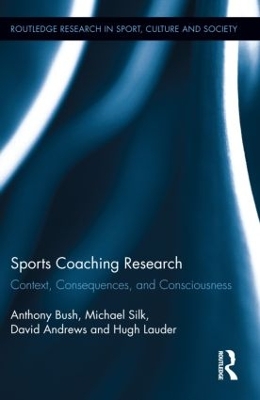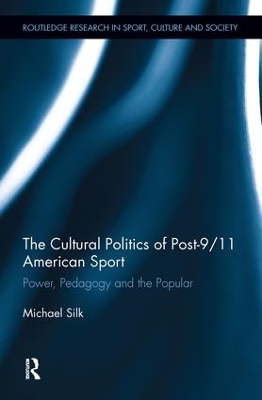Routledge Research in Sport, Culture and Society
2 total works
Sports Coaching Research
by Anthony Bush, Michael Silk, David Andrews, and Hugh Lauder
This book raises critical questions about the explanatory framework guiding sports coaching research and presents a new conceptualization for research in the field. Through mapping and contextualizing sports coaching research within a corporatized higher education, the dominant or legitimate forms of sports coaching knowledge are problematized and a new vision of the field, which is socially and culturally responsive, communitarian and justice-oriented emerges.
Much of the writing on the post-9/11 period in the United States has focused on the role of "official" Government rhetoric about 9/11. Those who have focused on the news media have suggested that they played a key role in (re)defining the nation, allowing the citizenry to come to terms with 9/11, in providing ‘official’ understandings and interpretations of the event, and setting the terms for a geo-political-military response (the war on terror). However, strikingly absent from post-9/11 writing has been discussion on the role of sport in this moment. This text provides the first, book-length account, of the ways in which the sport media, in conjunction with a number of interested parties – sporting, state, corporate, philanthropic and military – operated with a seeming collective affinity to conjure up nation, to define nation and its citizenry, and, to demonize others. Through analysis of a variety of cultural products – film, children’s baseball, the Super Bowl, the Olympics, reality television – the book reveals how, in the post-9/11 moment, the sporting popular operated as a powerful and highly visible pedagogic weapon in the armory of the Bush Administration, operating to define ways of being American and thus occlude other ways of being.

